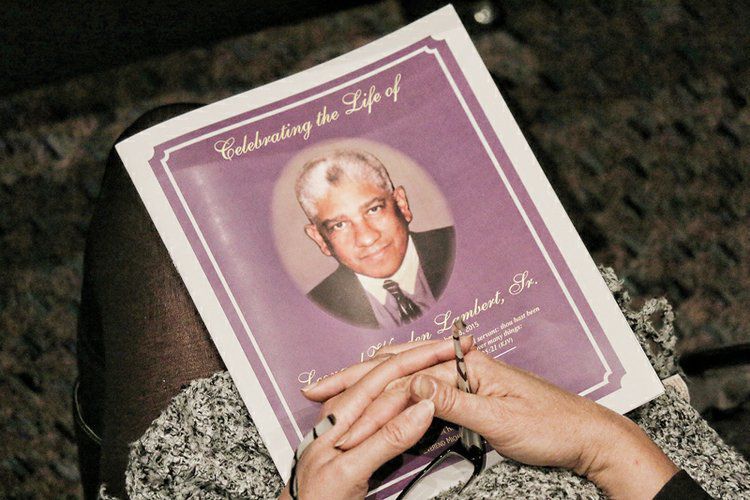Do You Need A Grief Counselor?
When it comes to funeral planning for a loved one, grief and stress can go hand in hand. While some people are able to manage these emotions alone, many people will need professional help in order to get through the period of loneliness and sadness after a loved one dies. There is no shame in advocating for your mental health and grief counselors can be instrumental in helping you move on from your loss. Everyone grieves differently, and your personal path might include some guidance from an external source who is not close to you.
When it comes to funeral planning for a loved one, grief and stress can go hand in hand. While some people are able to manage these emotions alone, many people will need professional help in order to get through the period of loneliness and sadness after a loved one dies. There is no shame in advocating for your mental health and grief counselors can be instrumental in helping you move on from your loss. Everyone grieves differently, and your personal path might include some guidance from an external source who is not close to you.
What is grief counseling?
Grief counseling goes by many names: grief and loss counseling, bereavement counseling and grief therapy, to name a few. These terms simply refer to meetings—one-on-one or group—with a professional that will help guide you through the mourning process and ultimately move you out of it.
These professionals might come from many walks of life. A grief therapist could be a certified mental health professional like a psychiatrist or psychologist, but it could also be a religious leader, nurse, or social worker. The primary goal of grief counseling is that the patient achieves a non-judgemental environment in which he or she can process feelings.
If grief counseling sounds like something that could help you, here are some tips for finding an appropriate grief counselor.
Decide what you need in a counselor
Before you begin searching for a grief counselor, you should take some time to think about what you want from your counseling. Some questions you might consider are:
- How long do you want to be in therapy?
- Do you want individual or group counseling?
- Do you want your therapist to have religious or professional training or both?
- Are you seeking an opportunity to vent and have someone listen, or are you looking for actionable guidance in recovering from your grief?
- Do you have an age or gender preference for your therapist?
- How often do you want to go to therapy? Daily, weekly, bi-monthly?
Another factor to consider before you start searching for a grief counselor is cost. Most insurances will cover mental health care visits, often including but not limited to several visits with a grief counselor, but it’s important to confirm exactly what your insurance covers so you aren’t surprised by expenses. If you don’t have insurance or mental health care isn’t covered, contact a local hospice organization. They often have affordable or free grief management services or can direct you to them.
Do your research
Your friends and family—especially those that might be suffering the same loss that you are—can be wonderful resources for seeking out a grief counselor. If you’re comfortable telling people that you’re seeking a grief therapist, you might be surprised to find that other people are already in grief counseling! Your support network could put you in touch with the perfect counselor.
If you prefer to keep your search to yourself, there are a variety of resources online for finding a grief counselor. Just google the terms “grief counselor” and your city.
Don’t give up
Finding a counselor or counseling arrangement can be challenging—don’t expect to get it right on the first try. If you try a grief therapist and it doesn’t feel quite right, try another one. There are a lot of factors that contribute to a good fit with both your therapist and your therapy environment (i.e., group or individual), so don’t be discouraged if it doesn’t immediately feel productive. Additionally, therapy is hard work—you might not see results immediately and it might be challenging to hash out your feelings every week. Don’t give up! Grief doesn’t have to be permanent; you have the power to get your life back.




